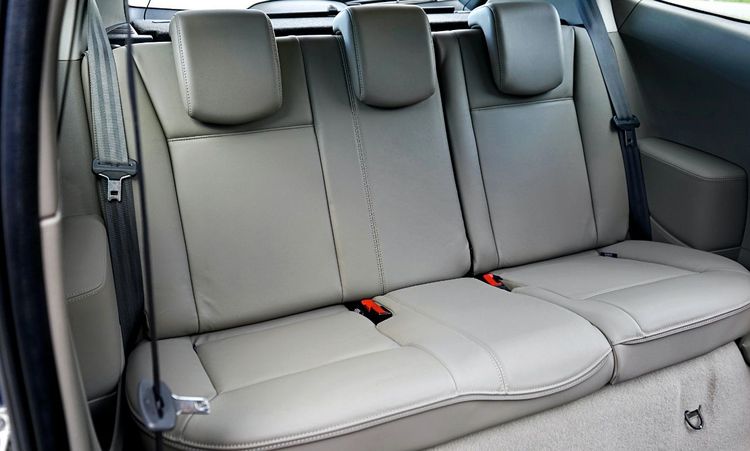When a vehicle's engine starts showing signs of failure, one of the most common terms car owners will encounter is "engine overhaul." But what exactly does this term mean? An engine overhaul refers to completely disassembling, inspecting, repairing, and reassembling an engine to restore it to optimal functioning. This guide will explore what an engine overhaul entails, the signs that indicate your engine may need one, the process itself, the benefits, and how to decide whether it's the right choice for your vehicle.
What Are the Symptoms Indicating the Need for an Overhaul?
Excessive Oil Consumption

One primary indicator that your engine might need an overhaul is excessive oil consumption. If your vehicle requires frequent oil top-ups or if you notice oil levels dropping rapidly without visible leaks, it could signal an internal issue. This may be due to worn piston rings, valve seals, or other components responsible for maintaining oil flow and engine lubrication.
Metallic Debris in Oil
If you notice metallic debris in the oil when you check it, this can be a sign of severe engine wear. Metal shavings or particles can indicate that parts like bearings, pistons, or cylinder walls are starting to deteriorate, which is often a result of friction from parts that have worn down over time. If left untreated, this damage could lead to a complete engine failure.
Unusual Engine Noises
Other apparent signs of a problem include unusual or loud noises that originate from the engine. Knocking, tapping, and grinding noises that are very loud during acceleration or at an idle may signal that the internal mechanisms of the engine are malfunctioning. These noises occur very often because of movement that is excessive or damaged within parts such as bearings, pistons, or camshaft parts.
Key Steps in the Engine Overhaul Process
Inspection and Diagnostics
Any kind of major overhaul of the engine should start with detailed inspection and diagnosis test. Based on performance, mechanics will judge the engine for any problems. In this respect, various diagnostic tools can be applied which may include compression testers, leak-down tests, and oil analysis, indicating poor compression, leaks, or too much wear and tear.
Disassembly of the Engine
Once the engine has been thoroughly inspected, the disassembly process begins. This step involves removing various components, including the cylinder head, pistons, crankshaft, and timing system. Careful labeling and organization are essential during this step, as it allows for efficient reassembly.
Cleaning Components
Next, after dismantling, the various parts of the engine undergo a general cleaning: the removal of carbon build-up, dirt, grime, and other contaminants from the various parts like the cylinder head, pistons, and valves. Special cleaning methods, such as ultrasonic cleaning or abrasive blasting, are very often resorted to with the aim of restoring the parts to their best condition.
Replacement of Worn Parts
These are replacements made during an overhaul for those components that have reached a worn-out or damaged state. These can include piston rings, bearings, valves, seals, gaskets, or timing belts. Replacements are necessary to restore performance and efficiency in the working of the engine.
Identifying Parts That Need Replacement
Of course, not every part in the engine must be replaced when overhauling. The mechanic will have a careful examination to see whether the part is working or it requires replacement. Replacements are usually done for parts such as:
- Piston Rings: These rings wear out over time due to constant friction and heat, leading to poor compression and excessive oil consumption.
- Valve Seals: Worn valve seals can lead to oil leaks, causing engine misfires and increased emissions.
- Gaskets: Over time, gaskets can degrade, leading to leaks in the engine's cooling system or exhaust system.
Commonly Replaced Components
While the components mentioned above are some of the most common parts that need replacement, other parts may also require attention during an engine overhaul, including:
- Timing Chains or Belts: These components are crucial for maintaining engine timing and synchronization and tend to wear over time.
- Water Pump: The water pump circulates coolant through the engine. If it's worn or failing, it can cause the engine to overheat.
- Crankshaft and Camshaft Bearings: These bearings reduce friction and ensure smooth rotation of key engine components.
Benefits of an Engine Overhaul

Improved Engine Performance
One of the most significant benefits of an engine overhaul is improving engine performance. By replacing worn-out parts and correcting internal problems, the engine will run more effectively, producing higher power output with smoother operation. This may further translate to improved acceleration, fuel efficiency, and a smooth driving experience.
Increased Engine Longevity
An overhaul adds quite a number of years to the life of any car engine. Since the worn parts are replaced and possible problems are put right, the overhauling enables the engine to run properly for a more extended period. At times, an engine overhauled with competence will easily serve several hundreds of thousands miles quite satisfactorily.
Cost-Effectiveness Compared to Replacement
Overhauling the engine will be less expensive than an entirely new replacement in most cases. The process is very expensive in labor and parts, but far less than the process of buying and installing a completely new engine. In addition, you will be getting back a restored running engine that has been thoroughly inspected and repaired.
Factors Influencing Overhaul Costs
- Type of Vehicle and Engine: The cost of an engine overhaul can vary based on the make and model of your vehicle. Luxury cars or vehicles with more complex engines tend to have higher overhaul costs due to the higher cost of parts and labor.
- The extent of Damage: The amount of damage to the engine will directly affect the cost of the overhaul. The cost will be significantly higher if significant components like the crankshaft, camshaft, or cylinder heads need replacement.
- Labor Costs: Labor costs vary based on the repair shop's location and expertise. Shops with experienced mechanics may charge more, but they can also complete the overhaul faster and more efficiently.
Budgeting for an Overhaul
When budgeting for an engine overhaul, it'sgetting a detailed estimate from a reputable mechanic is essential. The estimate should include labor costs, parts replacement, and additional diagnostic test charges. Keep in mind that while an overhaul can be expensive, it is still more affordable than replacing the entire engine.
Engine Overhaul vs. Rebuild vs. Replacement

When faced with engine issues, vehicle owners often wonder whether they should opt for an overhaul, rebuild, or replacement. While all three terms relate to engine repair, they differ in scope and cost.
Differences Between Overhaul and Rebuild
An engine overhaul is typically more comprehensive than a rebuild. While both processes involve disassembling the engine, an overhaul usually includes inspecting and replacing all significant components worn or damaged. In contrast, an engine rebuild may only involve replacing specific parts and restoring the engine to working condition without addressing every potential issue.
Comparison with Engine Replacement
Engine replacement means that the engine is completely removed from the car and replaced either by a new one or a second-hand one. This usually happens to be the most expensive one but is also necessary when an engine cannot be repaired or the damage is extreme. Compared with an overhaul, it is cheaper and allows your engine to reach its previous good condition.
Conclusion
Overhauling your car's engine might just be the great option if, although it showed some wear but is not yet completely beyond repair. This will boost the performance by adding to the longevity of such an engine over replacement-probably at a very considerable cost-saving. Again, this will depend on how one evaluates the overall state of your automobile and the real expert opinion as to whether the need for an overhaul exists.




